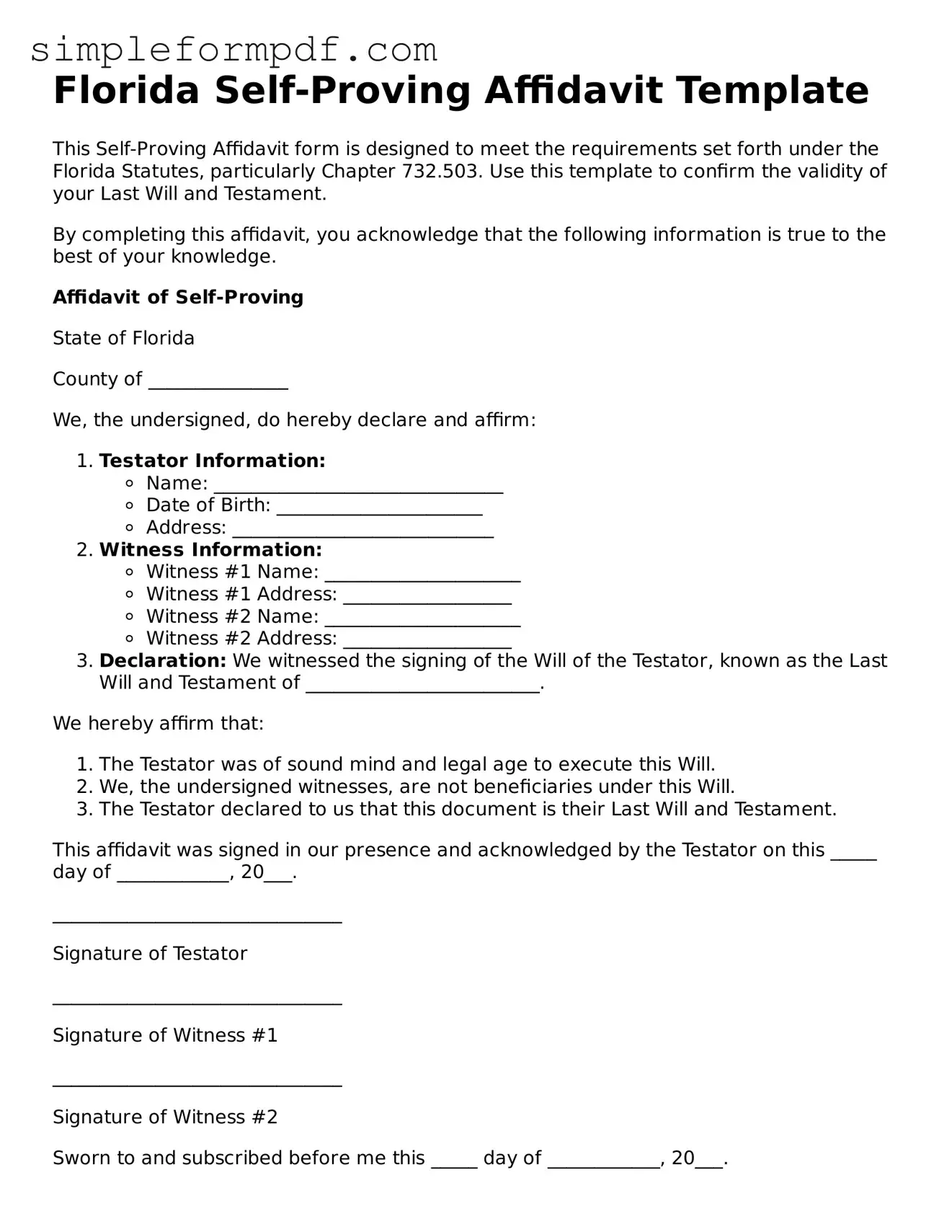Free Self-Proving Affidavit Form for the State of Florida
The Florida Self-Proving Affidavit is a legal document that allows a testator's will to be validated without the need for witnesses to appear in court. This form simplifies the probate process by confirming that the will was properly executed and that the testator was of sound mind. Understanding how to fill out this form can save time and ensure a smoother transition for your loved ones.
Ready to simplify your estate planning? Click the button below to fill out the Florida Self-Proving Affidavit form.
Launch Editor

Free Self-Proving Affidavit Form for the State of Florida
Launch Editor
Need instant form completion?
Finish Self-Proving Affidavit online in just a few minutes.
Launch Editor
or
Download PDF
